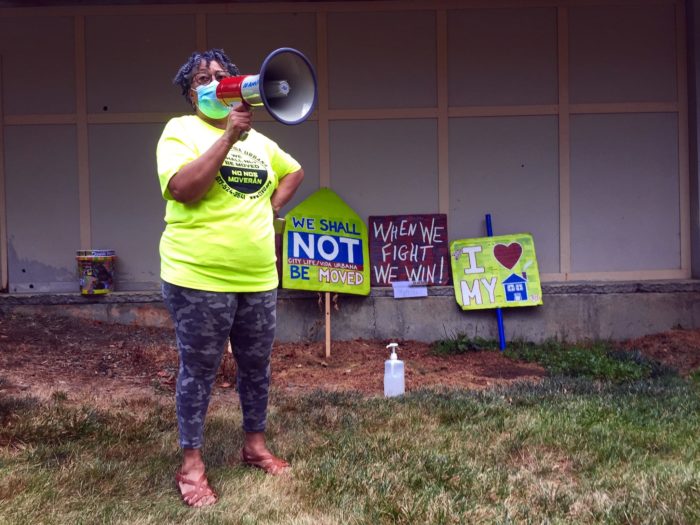
We traced 500-plus Mass properties to fewer than 20 Delaware addresses. Will this costly loophole ever close?
The parent company of TD Garden, which is located in Boston, is a global food service and hospitality operation headquartered in Buffalo, New York, named Delaware North. That business, which “operates in the lodging, sporting, airport, gambling and entertainment industries,” doesn’t technically own the home of the Celtics and Bruins; rather, the legal owner of TD Garden, aka Parcel #0301925100 as the property is listed in city of Boston property records, is Delaware North Companies Inc. Boston. That corporation has an address in Delaware, specifically on New Burton Road in Dover, the same address of Cogency Global, a registered agent services provider. Also registered at that address in Dover are several other shell companies: KRT Holdings LLC, which legally owns 375 Newbury St.; and 12 Hemenway LLC, which legally owns the Boston Fenway Inn by FOUND at the cross of Hemenway and Haviland streets.
Are you still following along? Good, there’s a lot more…
Next door to TD Garden is Avalon North Station, a new development whose legal owner is Avalon Nashua LLC, a Delaware subsidiary controlled by the larger Virginia-based AvalonBay Communities. That company also developed and owns Avalon Exeter in Back Bay and AVA Theater District downtown—each has its very own shell companies in Delaware. Those three entities—Avalon Nashua LLC, Avalon Stuart LLC, and BP Prucenter Exeter LLC—are registered at 1209 North Orange St. in Wilmington, aka the Corporation Trust Company.
The Orange Street address is so well-known as a hub for tax dodging that it has its own Wikipedia page. Billions of dollars are collected through it every year, with a whole lot coming from the Bay State.The combined value of the aforementioned three properties alone, according to figures pulled from the Boston City Assessing Department, is north of $555 million.
A Washington Post report from 2016 showed that the Corporation Trust Company had “served as the registered address for more than 250,000 businesses.” That data reflected the national picture five years ago; my research, which I have compiled over the past year at thishand.info for This Hand Project, examines the ownership shuffle behind Boston’s skyline today.
The chart above displays the most valuable properties in Boston that are owned by Delaware shell companies
The mechanism at the heart of this ongoing shell game is the notorious “Delaware loophole,” which allows companies to move so-called intangible assets to largely opaque subsidiaries in the Mid-Atlantic haven. In practice, corporations are able to legally avoid paying certain burdensome taxes.
It’s all very confusing, to be sure—that’s how these relationships and pass-throughs are apparently designed. But in surveying the larger landscape, some patterns are clear; in particular, the city of Boston as well as the Commonwealth are potentially losing millions of dollars in tax revenue annually.
For This Hand Project’s analysis, we identified more than 500 properties in downtown Boston along with their legal owners (usually an LLC), the owner’s registration record in Delaware, and the larger corporation or real estate investment trust (REIT) that controls the property through the aforementioned legal owner or LLC. All together, as of last year, these Boston properties that operate with Delaware arms have a combined value of approximately $31 billion.
Such a figure begets larger questions about corporate taxes as well as structural inequality in the Hub. By starting with a massive trove of data linking Boston-based corporations and property owners that housing advocates and other activists have amassed on group chats, then speaking with experts and fact-checking and combing through piles of information, we went searching for answers.
The dodge
The practice of incorporating Delaware subsidiaries for the purposes of reducing tax liability, aka the “Delaware loophole,” is a well-established and popular insider tool among high-yield real estate corporations. This maneuver is completely legal, resting on a lack of legal infrastructure among state governments to curb or restrict such sophisticated moves.
As Alana Semuels of the Atlantic explained in an article titled, “Sure, it’s a tax haven, but other states’ weak rules are part of America’s enduring tax-evasion problem,” states “which collectively lose billions of dollars in tax revenues when companies put parts of their business in Delaware could stop that from happening if they wanted to. But, for various political reasons, they don’t, depriving themselves of revenues that could fund education, infrastructure, and other basics.”
“Delaware is the premiere secrecy jurisdiction in the US, and the destination of choice for money launderers, global kleptocrats, and other bad actors who want to hide money, dodge taxes, and avoid accountability/responsibility,” Chuck Collins says. The director of the Program on Inequality and the Common Good at the Boston office of the Institute for Policy Studies, Collins adds, “Delaware’s secrecy system undercuts other states and our ability to stop criminal behavior and crack down on tax dodgers.”
A handful of registered agents in Delaware are the legal mailing addresses for almost 500 properties in Boston. The value of Boston properties registered at 1209 N Orange St. in Wilmington, the office of The Corporation Trust Company, is a staggering $18 billion. The value of Boston properties registered at 251 Little Falls Dr., the office of the Corporation Service Company, is $8 billion
Corporations registered in Delaware reap many benefits of lower taxation on their corporate income overall, as well as zero taxation on profits earned outside of Delaware. In a relatively easy process, a large corporation can pay a registered agent based there for the right to use their address for business. That address can then be registered to a shell corporation, generally a limited liability company (LLC) that can be used for a specific business purpose, like owning a single development. As the data mined by This Hand Project shows, more than 500 Boston-based properties are registered to fewer than 20 agents in Delaware.
A broad range of interests take advantage of the Delaware loophole. Two Cumberland Farms businesses, one in South Boston and another one in Brighton, are legally owned by a Delaware subsidiary of Cumberland Farms registered at 251 Little Falls Dr. in Wilmington, the address of the Corporation Service Company. The same address appears on more than 100 property records uncovered in our research.
In another example, multiple properties are registered to shell companies—Dicentra LLC, Serama LLC, Wintergold LLC, Morello LLC, and Jocote LLC—that trace back to Gerald R. Chan, son of Harvard University donor and real estate mogul T.H. Chan. Even New Balance plays the game; according to property records, its 125 Guest St. development, Lantera at Boston Landing, is registered to a shell company in Delaware called Railyard Residential LLC. Railyard’s listing in the Massachusetts Corporations Division database lists New Balance executive Paul Gauron as its registered agent.
Some of the local characters with Delaware connections are tied to international movers and shakers. The Courtyard Boston Copley Square Hotel at 88 Exeter St. is legally owned by Hadar Boston LLC, also registered as Hadar Victorian LLC from 2012 onward. The Massachusetts Corporations Division website entry for Hadar lists two managers for the corporation, one of whom is Henryk Ilan Sebba of Boulder, Colorado.
Sebba appears in the International Consortium of Investigative Journalists (ICIJ) offshore leaks database in an entry from the Paradise Papers. The resource links him to a network of businesses registered in the Isle of Man, a British dependency with its own reputation for assisting tax dodgers. There is no indication that those dealings are related to Sebba’s business in Mass.

The squeeze
In a nondescript parking lot in a generally uneventful corner of Brighton, 60 tenants and allies are gathered and shouting, “Housing justice is racial justice!” Aim as 1, an activist group of tenants of the Samia Companies, organized the rally in conjunction with City Life/Vida Urbana and Rent Strike 2020. A light rain didn’t stop the lively group from turning out, far from any T stop and across from the landlord’s office on Leo F. Birmingham Parkway.
It’s April, about a month into the COVID-19 pandemic, and the group is demanding that Samia stop all evictions. Aim as 1 member Leo speaks into a megaphone: “The balance of power between landlords and tenants is already skewed against us. Massachusetts Housing Courts estimate that 20,000 eviction cases will be filed after the eviction moratorium is lifted. … Black women are twice as likely to be evicted over white tenants overall. This is unacceptable!”
The crowd of 50-plus people is diverse in age, with people of various racial identities chanting together. Tenants and advocates take turns speaking about unfair treatment in the court system, and in everyday exchanges with their landlords and the city. They may not be aware of specifics regarding tax-dodging and how Bay State politicians favor corporations based in Delaware over their own constituents, but they fully understand what they are up against.
“We don’t stop because landlord abuses don’t stop,” says Amala, an organizer with Aim as 1. “Because capitalism doesn’t stop.”
The fix
There are countless reasons that Mass lawmakers have neglected to close these loopholes so far, not the least of which is pressure from the corporate donor class. You’ve heard the argument before: Increasing corporate tax rates will make it too difficult—or even impossible—for major companies to succeed in the Bay State. Some may even have to close their doors!
The various positions around that debate don’t change basic facts of the matter. As This Hand Project data shows, the status quo already means that tens of billions of dollars in real estate were acquired and taxed through highly opaque means via Delaware shell companies. To add more context, as the Massachusetts Budget and Policy Center reports, the share of corporate excise tax within the state’s operating budget has fallen over time. Through the 1980s, around 16% of the annual budget was made up of corporate tax revenue; in the 2010s, that number fell to an average of 10.6%. According to MassBudget, “Had Massachusetts collected in Fiscal Year 2019 an amount of corporate excise [equivalent in percentage to FY89], businesses would have contributed another $1.4 billion in these taxes to the Commonwealth in that fiscal year.”
Throughout the 20th century, corporate tax revenues have generally fluctuated in a downward trend. As Boston’s United for a Fair Economy reports, corporate income tax made up 35.4% of the federal budget in 1945 compared to just 10.6% in 2014. In Mass, tax revenue was already inconsistent at best before the coronavirus hobbled the economy, and allowing businesses to skimp through Delaware subsidiaries isn’t helping ease those pains. For low-income residents now forced to navigate hurdles ranging from shoddy social services to rising public transportation costs, the notion that some wealthy corporations could pay more to balance out the scales is particularly stinging.
In an apparent state attempt to mend the loophole, in 2019 lawmakers on Beacon Hill began evaluating the Mass tax code with the intent of making reformative recommendations. Specifically, the Senate revenue working group tapped a wide bipartisan array of professional hands to inform their research. Interests weighing in have included economist Michael Lucci, who already considers the state’s corporate excise tax “burdensome and uncompetitively structured,” based on Mass excise tax revenue being higher than the national average (8.6% and 5%, respectively). As for closing loopholes, Lucci described taxing overseas earnings as “an uncompetitive departure from normal state tax policy.”
This diagram filters properties by ownership, with principal owners in the inner radius, Delaware LLCs used to conduct business in the middle, and properties owned by that LLC in the outer radius
During the pandemic, members of the revenue working group have said that it’s too soon to think seriously about changes meant to address the fiscal fallout from the coronavirus pandemic, as was reported in April by State House News Service. While working group member Sen. Adam Hinds has said he wants to promote economic growth through a corporate tax system that is “efficient, simple, [and] fair,” there is no sign that the Senate will seriously address the Delaware loophole before the current legislative session ends in January. Interpreting that hesitation as a stalling tactic while there is a crisis upon Massachusetts, in June a group of progressive House lawmakers wrote an open letter to working group members.
“As policymakers, it is on us to find creative answers to difficult questions.” The letter, signed by 37 House members, references a bill that would bring in much-needed revenue from new corporate taxes to fund transportation. The note continued: “There is never a perfect time to pass a tax increase, but as elected officials, it is our duty to act boldly and in the best interest of our constituents. We respectfully urge the Senate to take the opportunity presented by the House and act on raising revenue needed to fund both our transportation needs, the investments we promised in education and the many needs that the Commonwealth faces as we work our way out of this public health and economic crisis.”
This article was produced by the Boston Institute for Nonprofit Journalism in partnership with This Hand Project and DigBoston.
This Hand Project’s name is derived from the official Commonwealth of Massachusetts motto: “This hand, an enemy to tyrants, seeks with the sword a quiet peace under liberty.”
Hassan Ghanny is a writer and journalist based between Boston and Puerto Rico. His writing has been featured in the Boston Globe and WBUR, and explores the intersections of media, culture, and identity.

